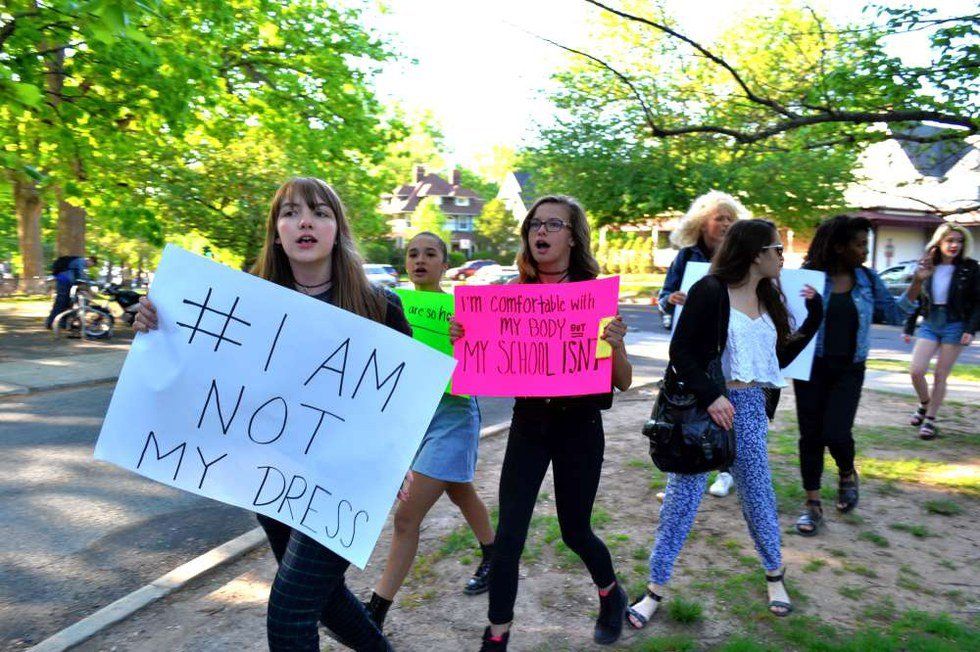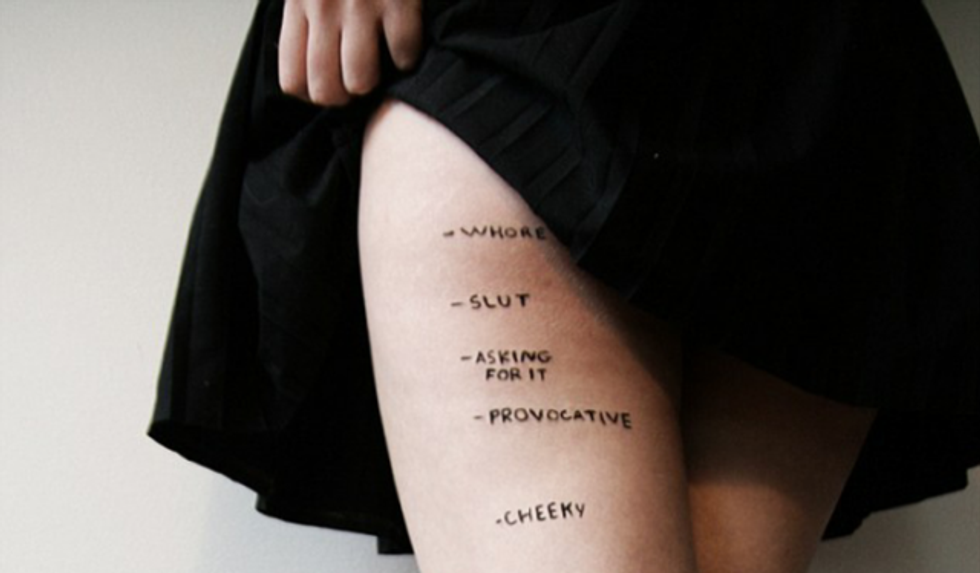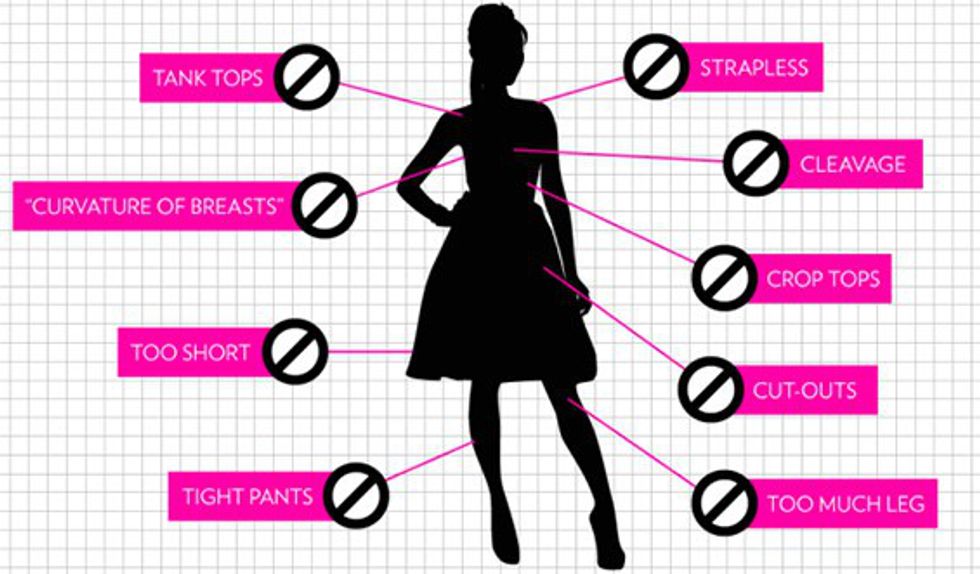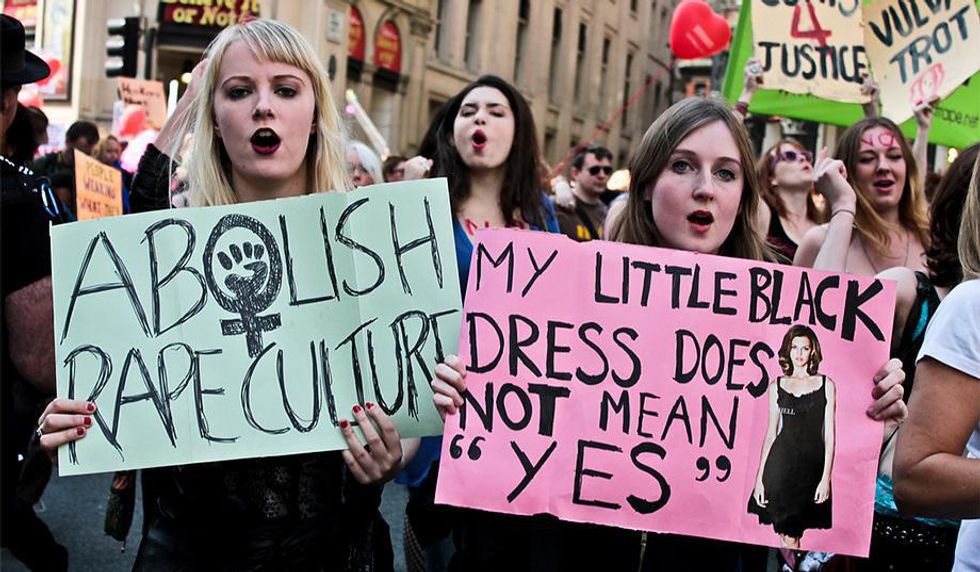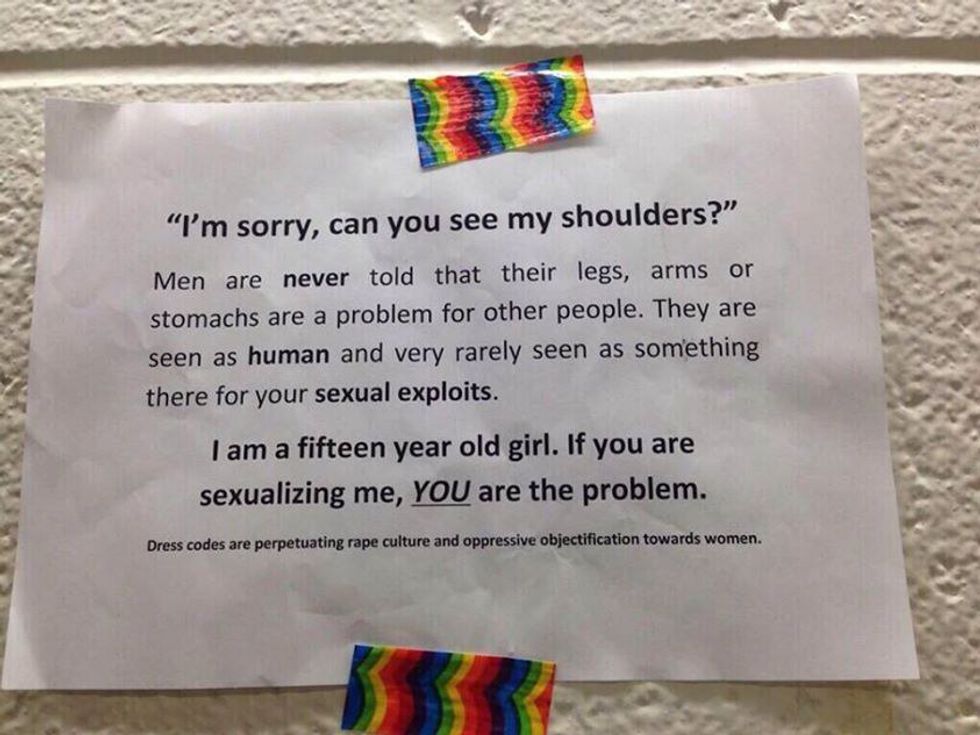Schools today have varying dress code rules that range from nonexistent to virtually impossible for young women to follow. The first time I was pulled aside about my “inappropriate” school attire was in the sixth grade. It was a hot day in early September, and my 11-year-old self was proudly flaunting my new Abercrombie and Fitch tank top. Getting dressed that morning, I remember feeling confident as hell in my new top. However, when I walked into my first period history class, my male professor asked if I had a sweater to cover up my shoulders. I told him I did not. It was nearly 90 degrees outside and the classroom was not air-conditioned. In front of the entire class, he immediately sent me to the middle school’s administrative office for violating dress code.
I was never one to argue with teachers or to challenge rules, so confused and humiliated, I did as I was told. Upon walking into the office, the principal’s assistant told me that if I didn’t have a jacket, I would have to change into my gym uniform. As fashion conscious as I was, I was horrified that I’d have to endure the rest of the school day in an ugly, bright blue Crocker Vikings gym shirt made of uncomfortable synthetic jersey material. I frantically texted my mom asking her to bring me a change of clothes. Unfortunately, she was in the city for business and by the time she’d be able bring me a different shirt, the school day would be over. So reluctantly, I walked to the school gym and retrieved my sweat-stained P.E. shirt from the locker room. By the time I returned to class, smelling like sweat and shame, I’d already missed thirty minutes of lecture.
Unfortunately, this would not be the last time that I was punished for dress code violations. Most girls at my school were publicly humiliated at least once a week for similar transgressions. When my extremely supportive (and very feminist) mom asked why I got a detention for three consecutive dress code violations, the vice principal simply declared that inappropriate school attire was “distracting” to young boys and diverted their attention from learning. It didn’t matter that my education was compromised by wasting class time changing into more “appropriate” clothing, only that “preditorial” 11-year-old boys didn’t get aroused in the middle of pre-algebra.
Since I graduated from eighth grade, my middle school’s dress code regulations only got stricter. No longer were girls allowed to wear tight tank tops, shoulder-exposing shirts, yoga pants, leggings, skinny jeans, or even Ugg boots (for reasons I still can’t comprehend).
The saddest part is that my middle school was a secular public school in one of the most liberal parts of California. A friend of mine, who went to a Catholic all-girls high school, had it even more difficult. Most days she was required to wear a uniform that covered everything from her chest to her knees. Before Halloween, her school conducted an assembly about what Halloween costumes were considered “appropriate” for school. Her principal shamelessly projected an image of young girls dressed in costumes with shorter hemlines and lower-cut tops. She presented this photo example of “trashy” Halloween attire that would not be tolerated on Friday’s school dress-up day. In light of the previous week’s assembly about the cruelty of body shaming, my friend raised her hand and asked why the principal’s declaration of the raciness of a fifteen-year-old’s Halloween costume wasn’t considered body shaming. Likely caught off guard, the principal stuttered through the same canned response that I received whenever I got in trouble for refusing to comply dress code regulations: exposing excess skin was immodest and distracting.
Fortunately, in high school, I started to recognize the injustice and hypocrisy of these rules and began refusing dress code punishment. How could I be accused of being “inappropriate” in the classroom, while my teachers and school administrators were the one’s sexualizing a young girl’s shoulders or midriff, neither of which are inherently sexual at all. Meanwhile, boys at my high school weren’t questioned for wearing speedos or low cut dresses for school dress up days. It wasn’t uncommon for boys at my school to walk around shirtless after P.E. class, and I’ve never seen a guy being shamed for wearing skinny jeans or tight compression pants. Is this because women’s bodies are percieved as inherently more sexual then men’s, or is it because men are steretyped for being less able to control their sexual urges. Either way, in addition to being hypocritical, the difference in dress code enforcement among genders is extremely heteronormative. If young women are expected to hide up their bodies from heterosexual men, why aren’t men expected to dress conservatively for other men who might find exposed male skin “distracting?”
School dress codes encourage the idea that women’s body parts need to be concealed, that it is our fault for attracting attention for what we are wearing or encouraging sexual behavior in men. This is the same argument often used to justify rape. It shouldn’t matter if young girls decide to wear tank tops or tight pants to school. If boys are distracted by the obvious sexual nature of a girls’ shoulders, then his behaviors should be monitored, not hers. Similarly, if a woman is scantily clad at a party, the culprit of sexual assault should be shamed, not the woman just trying to express her personal style in an outfit she feels comfortable in.
If schools and other institutions where children spend a majority of their development label young girl’s bodies as sexual objects, our society’s rape culture will only intensify the notion that it is more acceptable for boys to view girl’s bodies as sexual objects than for girls to have the freedom to wear whatever they want. By blaming young girls’ wardrobes for acts of sexual harrassment, schools enforce the ridiculous belief that rape can be justified by provocative clothing.
Thankfully, I’m finally out of the public school system that places such an unnecessary weight covering up women’s body parts in order to prevent sexual temptation. However, if you are still subjected to the oppressiveness of school dress codes, I encourage you to fight this incredibly misogynistic institution. I’m obviously not encouraging girls to go to school in a bikini every day (that would get cold!), but if you are shamed for your clothing by school faculty, ask them why you are being dress coded and attempt to reason with them by questioning the sexism on which these rules are founded. If you have supportive parents or family members, ask to arrange a meeting to discuss the ethics of punishing girls for their clothing.
If I could go back to the sixth grade, I would not stand for dress-coding. I would challenge teachers who gave me a hard time by questioning the sexism intrinsic to these clothing restrictions, and continue to rock my Abercrombie and Fitch tank tops with pride.



